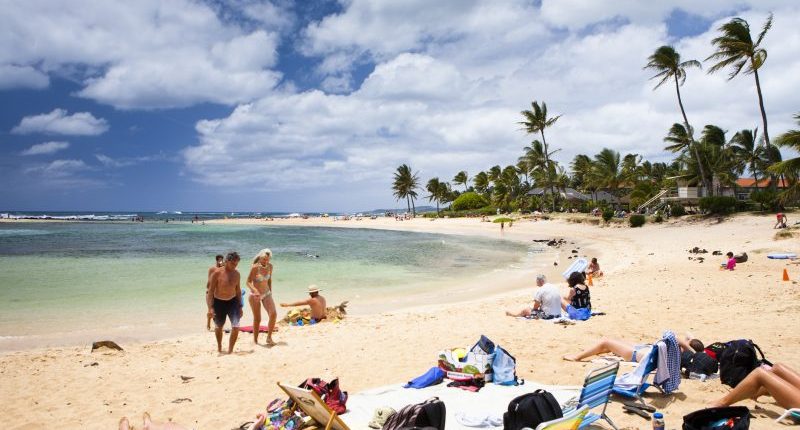Share this @internewscast.com
HONOLULU (KHON) – Beginning next year, visitors to Hawaii will be subject to a “climate impact fee,” which aims to generate funds for mitigating future environmental challenges the state expects to face.
Hawaii Gov. Josh Green signed Act 96 into law Tuesday, effectively approving a tax, also known as the “Green Fee,” which is the first of its kind in the nation.
“I hope the world is watching because having something that is a balance between industry and environment is gonna be the way to go forward to protect our people […],” Green said.
“And most importantly, to protect the lifestyles and the lives we want our children to have for generations to come.”

The law now increases the state’s Transient Accommodation Tax (TAT) by .75%, to 11%. This fee will be applied to costs for tourism-related activities, including hotels and cruise ships that dock in Hawaii.
To break that down, for every $400 spent, $3 will go towards natural resource protection.
The bill is projected to raise an estimated $100 million a year to address what the state says is about half a billion dollars in critical funding needed to protect Hawaii’s environment.
“The visitor industry will struggle if we do not take action now,” said State Rep. Adrian Tam, chair of the House Committee on Tourism.
Unlike other state programs, the money generated won’t go into a dedicated special fund. Instead, the legislature will reevaluate priorities each year to decide where the money should go based on the greatest environmental need.
The areas of priority are protecting land and aquatic resources, climate and hazard resiliency and sustainable tourism.
The Grassroots Institute of Hawaiʻi, a longtime opponent of the bill, argues that it could end up hurting more than it helps.
“There’s nothing like a Hawaii vacation and that is 100% true. But that doesn’t mean that it won’t affect visitor spending and the attractiveness of Hawaii as a destination,” said Malia Hill, policy director at the Grassroots Institute of Hawaiʻi.
They argue the fee won’t just fall on tourists, it will also impact residents and small businesses.
“We travel interisland, for work, to see family, to see friends. So it is a tax on locals, and you cannot get away from that,” Hill said.
Act 96 takes effect Jan. 1, 2026.











